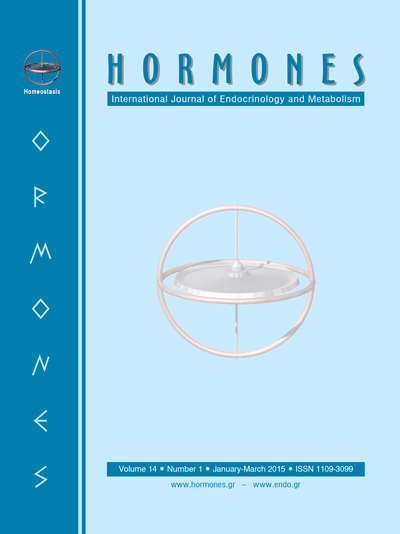Childhood obesity and the Metabolic Syndrome (MetS) are associated with an increased risk for early onset endothelial dysfunction and atherosclerosis. Placental growth factor (PlGF), a member of the vascular endothelial growth factor family, plays an important role in atherosclerosis by stimulating angiogenesis and atherogenic migration of monocytes macrophages into the arterial wall. The aim of this study was to investigate differences in circulating PlGF concentrations between children with obesity/metabolic syndrome and non-obese children. We have previously shown increased high-sensitivity troponin (hs-TnT) concentrations in children with MetS from the same cohort.
HORMONES 2014, 13(3):369-374
Για να διαβάσετε ολόκληρο το άρθρο, πατήστε εδώ.



